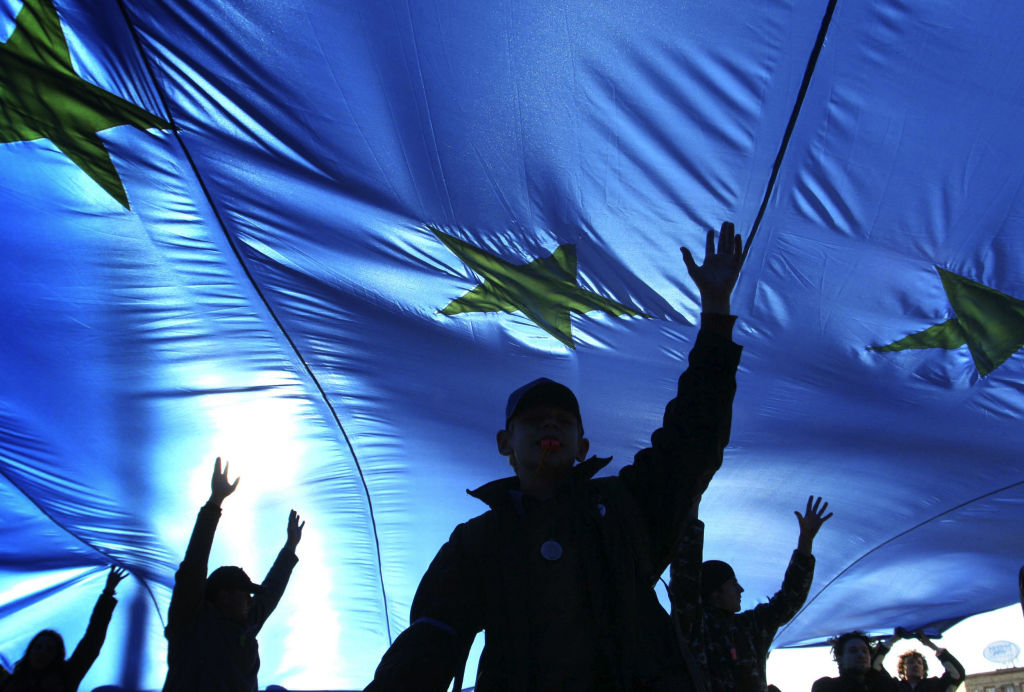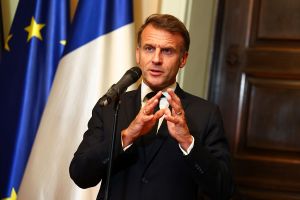On Belarus, the EU has been eager to talk the talk. But it has been slower to walk the walk. Belarus’s sham election — in which the country’s authoritarian leader Alexander Lukashenko won 80 percent of the vote — was condemned by EU leaders as ‘neither free nor fair’. But Brussels stopped short of explicitly demanding a new election, in spite of pleas from the opposition in Belarus as well as from four central European countries: the Czech Republic, Hungary, Poland and Slovakia.
In refusing to go further and call for a re-election, the EU is struggling with a dilemma faced by other Western countries: what is the best way to deal with authoritarian regimes in the neighborhood? Is it a good idea to trade with them? Should sanctions be imposed? An extra complication here is that Russia happens to consider Belarus as part of its own sphere of influence. So what can the EU do?
Imposing economic sanctions has been mooted but the history of sanctions is pretty damning. They failed to bring about much — or any — change in Iran, Venezuela, Cuba, North Korea, Robert Mugabe’s Zimbabwe or Saddam Hussein’s Iraq. In Burma or South Africa, democratic progress can perhaps be linked with sanctions, but even here the case is weak, as sanctions were already in place for two or three decades before reform happened. There is no reason to think that broad sanctions will change much in Belarus. Instead, they could simply offer Putin a chance to increase his sphere of influence further.
Unfortunately, the EU’s track record in dealing with Belarus does not inspire confidence either. Back in 1997, it imposed sanctions on Belarus, cutting off aid and diplomatic relations after Lukashenko dissolved parliament. Relations were reset in 2004, when Belarus was welcomed into the ‘European Neighborhood Initiative’, an arrangement entitling Belarus to EU funds. However, in that year, the EU subsequently imposed targeted sanctions for the first time on Belarus, hitting officials allegedly connected to the disappearance of politicians and a journalist. Later, top officials responsible for rigging elections were included. But the messages in this approach were mixed, to say the least.
In 2008, Russia’s invasion of Georgia led to another rethink on Belarus. According to Brussels’s geostrategic wisdom, this was a time to give Belarus a carrot, in a bid to bring it closer to the West. In 2010, the carrot promised by the EU to Lukashenko added up to €3 billion ($3.5 billion). But the jailing of opponents and rigging of elections continued. This made the EU change tack again, as 220 people and entities were once again sanctioned, including Lukashenko and his sons.
[special_offer]
These sanctions were largely lifted early in 2016, even if Lukashenko hadn’t improved his habits. Instead, the EU justified its change of heart by pointing to the ‘constructive’ role Belarus played in the region. Lukashenko, it seemed, had been smart to offer the Belarusian capital of Minsk as home of the peace process between Russia and Ukraine.
Now, following the 2020 sham election and the ongoing protests, the EU has once again decided to ‘impose…sanctions on a substantial number of individuals responsible for violence, repression and election fraud’. But Lukashenko can’t be blamed for thinking these punishments are unlikely to last long. As Belarusian journalist Maryia Sadouskaya-Komlach points out, the pattern of the EU’s strategy towards Belarus is ‘crackdown, sanctions, rapprochement, relaxation’. Why will this time be any different?
The lesson is — apart from not transferring taxpayer resources to foreign autocracies — that if targeted sanctions are imposed, they should be in the spirit of the rule of law, and their prosecution should not depend on political judgement and geostrategic considerations but on objective criteria. Western democracies have in recent years been passing so-called ‘Magnitsky legislation‘ which allows for governmental sanctions against foreign individuals that have committed human rights abuses or were involved in significant corruption. The EU announced in December to implement it as well, following the US and UK examples, so this is a modest step in the right direction. Could such an approach work in Belarus? The country’s people will be hoping so.
This article was originally published onThe Spectator’s UK website.

























